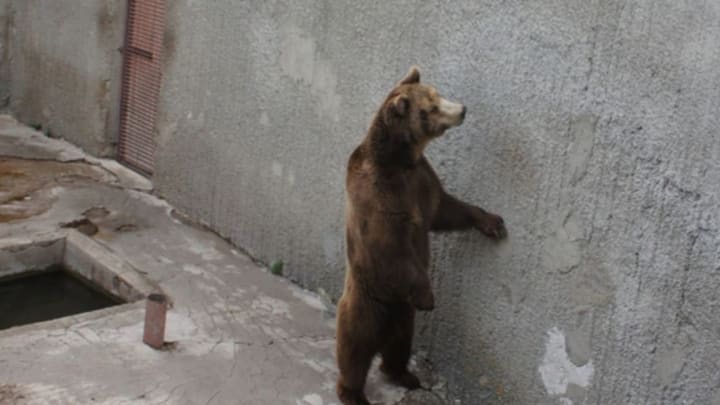There was something off about some of the bears. They didn’t belong there.
Researchers had gone to Bulgaria to study one of the last large populations of brown bears in Europe. While it’s nearly extinct in Western Europe, the species hangs on in the east, but biologists didn’t know much about how many there were, where they lived, or how the bears were all connected. To learn more about them, the team, led by Carsten Nowak, a wildlife geneticist at the Germany’s Senckenberg Research Institute, collected hair, scat, and tissue samples, and analyzed them.
While going through the animals’ DNA profiles, Nowak’s PhD student Christiane Frosch found something odd. Some of the bears didn’t fit. Their DNA profiles were unlike any of the others, suggesting they didn’t belong to the Bulgarian populations and that they’d come from somewhere else.
When the scientists compared the strange bears’ DNA to another population in Romania, they found a match. The bears had family ties to ones living in the Carpathian Mountains, some 600 miles away.
While bears will sometimes wander far from where they were born to find new territory, it didn’t seem likely that these foreigners had migrated from the Carpathians. They were all found far from the only potential travel route that could have gotten them there, with plenty of barriers in between. The foreign animals also were mostly females, which aren’t known to stray far from their home range. The genetic differences between the two populations didn’t suggest a lot of interbreeding, either.
So how did they get there? Nowak thinks it’s the work of a trigger-happy dictator.
Nicolae Ceausescu was the communist ruler of Romania from 1967 to 1989. During his reign, he enjoyed hunting, or, as David Quammen put it, “the sort of travesty of hunting that only a despot can experience and only a delusional egotist would enjoy.”
Ceausescu shot bears like they were fish in a barrel. He would travel by helicopter and jeep to one of the many hunting areas he had set aside for his personal use. There he would find a comfortable hunting blind overlooking a feeding trough that had been arranged by forest managers ahead of time. If it was taking too long for a bear to wander over to the bait (his attention span during a hunt often only lasted a few minutes), forest department employees would move through the woods and drive the animals towards him. If he missed his shot, his lackeys would find, kill, and deliver another animal so the president could still have his trophy. Once, after missing two shots, he commanded that fences be erected near the blind to channel the animals towards him and make them easier targets. Afterwards, taxidermists would stretch the bears’ pelts to artificially increase their size and Ceausescu’s trophy score.
Over his lifetime, Ceausescu shot anywhere from a few hundred to more than a thousand bears, depending on whose estimate you go by. He loved shooting the animals so much that he sometimes used them as a strange form of diplomacy. Bulgaria’s communist leader, Todor Zhikov, was also an avid hunter, but Bulgarian bears were disappointingly small compared to Romanian ones. To maintain good relations, Ceausescu would occasionally pack a few big bears from the Carpathians into a military plane and send them to Bulgaria as a gift for Zhikov.
While there’s no surviving documentation of these flying bears, forest managers and game wardens in both countries told Nowak’s team that they did happen. They also pointed them to some of the enclosures (top) that the bears were delivered to in Bulgaria, a few of which still exist and still house bears (the researchers weren’t allowed access to these to take samples from the bears). Indeed, the majority of the “alien” bears were found within a few miles of these delivery sites. The bears’ proximity to the enclosures and the evidence against natural migration, the researchers say, provide some of the first hard evidence confirming what’s long been regarded as just a Cold War-era legend.
Bulgaria isn’t the only place that Ceausescu sent his furry gifts, either, foresters told Nowak. The dictator supposedly tried to firm up his friendship with Sweden the same way, but the bear-bearing plane was turned away at the airport.
